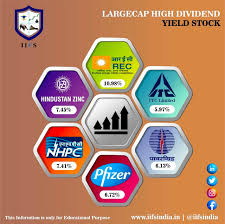
An s is an alveolar or voiceless dental sibilant in Latin. It is also known as sarkazein in Greek. It is also used as an abbreviation for "yes", which can be found on the keyboard. S corporations are a type corporation that can avoid double taxation for corporate income.
Latin s means voiceless voiceless alveolar sibilant or voiceless dental voiceless sibilant.
The Latin s is a voiceless dental or alveolar sibilant, one of the most common consonants in many vocal languages. Words such as sea, tase, and seaweed are examples of Latin s. The sound is characterized by its high-pitched hissing quality. It is frequently used in spoken languages to draw attention.
Although the voiceless and dental sibilants were initially retracted, retracted ones were still referred to as apico–alveolar. The Romance languages were responsible for the pronunciation of the sibilants, which derive their sound from an older, affricate sound like/k/, or /t/. Latin s is an example of a language which acquired a voiceless alveolar silenctant. However, it was not until the sixteenth century that Latin s was merged with the voiced ones. This could be due to the lack of a better sounding Latin that would represent the Semitic.

Greek sarkazein, also known as sarkazein, is a form of sarkazein
Sarcasm can be described as a type of wit that makes fun of someone or something using irony. It's a well-known communication technique. It derives from the Greek word sarkazein that means to rip flesh. In the mid-16th century, English adopted this word.
Latin s, which is an acronym for "yes", allows you to type quickly in Latin.
The Latin "s" is a fast way to write "yes," and can be faster than typing "y". This shortcut is particularly useful when you need to confirm via text or online. This shortcut should be used only when absolutely necessary, and only with people who are fluent in slang. You may also need to know Latin for "s", if "yes" is required in a particular situation.
S corporations avoid double taxation on corporate income
S corporations are a unique type of corporation which avoids double taxation of corporate income. The S corporation tax scheme allows all income and losses to be passed on to shareholders who then report them on their individual tax returns. S corporations are exempt from the corporate tax rate on profits and losses. S corporations are not taxed in the same manner by all states. S corporations are subject to tax in some states if their profits exceed certain limits. A form must be filed with the IRS to request S corporation status.
There are many benefits to an S corporation if you are considering it for your business. You can avoid double taxation by keeping your personal assets within the company. This structure prevents creditors from using your personal assets to pay business debt. This means you'll save a lot of money in taxation.

LLCs can be more flexible
LLCs have fewer recordkeeping requirements than corporations, and they are generally more flexible. When there are multiple owners, however, LLCs can require more work and attention. In addition, the forms used by law firms for LLC agreements vary widely. This can cause confusion for even the most sophisticated clients. You should consult a lawyer before forming an LLC.
Another advantage of LLCs are that their owners can be anyone. S corporations can only have 100 shareholders. Furthermore, only one class of stock can be owned by an S corporation. Accordingly, the shareholder's ownership interests must be divided proportionally to their ownership stake.
FAQ
Why are marketable Securities Important?
An investment company's primary purpose is to earn income from investments. It does this by investing its assets in various types of financial instruments such as stocks, bonds, and other securities. These securities are attractive because they have certain attributes that make them appealing to investors. These securities may be considered safe as they are backed fully by the faith and credit of their issuer. They pay dividends, interest or both and offer growth potential and/or tax advantages.
What security is considered "marketable" is the most important characteristic. This refers to how easily the security can be traded on the stock exchange. Securities that are not marketable cannot be bought and sold freely but must be acquired through a broker who charges a commission for doing so.
Marketable securities include government and corporate bonds, preferred stocks, common stocks, convertible debentures, unit trusts, real estate investment trusts, money market funds, and exchange-traded funds.
Investment companies invest in these securities because they believe they will generate higher profits than if they invested in more risky securities like equities (shares).
Why is a stock called security.
Security is an investment instrument whose value depends on another company. It can be issued by a corporation (e.g. shares), government (e.g. bonds), or another entity (e.g. preferred stocks). The issuer promises to pay dividends to shareholders, repay debt obligations to creditors, or return capital to investors if the underlying asset declines in value.
How does inflation affect stock markets?
Inflation can affect the stock market because investors have to pay more dollars each year for goods or services. As prices rise, stocks fall. That's why you should always buy shares when they're cheap.
Statistics
- Even if you find talent for trading stocks, allocating more than 10% of your portfolio to an individual stock can expose your savings to too much volatility. (nerdwallet.com)
- Ratchet down that 10% if you don't yet have a healthy emergency fund and 10% to 15% of your income funneled into a retirement savings account. (nerdwallet.com)
- For instance, an individual or entity that owns 100,000 shares of a company with one million outstanding shares would have a 10% ownership stake. (investopedia.com)
- Our focus on Main Street investors reflects the fact that American households own $38 trillion worth of equities, more than 59 percent of the U.S. equity market either directly or indirectly through mutual funds, retirement accounts, and other investments. (sec.gov)
External Links
How To
How to create a trading plan
A trading plan helps you manage your money effectively. It will help you determine how much money is available and your goals.
Before you begin a trading account, you need to think about your goals. You may want to make more money, earn more interest, or save money. If you're saving money, you might decide to invest in shares or bonds. If you are earning interest, you might put some in a savings or buy a property. You might also want to save money by going on vacation or buying yourself something nice.
Once you know your financial goals, you will need to figure out how much you can afford to start. This depends on where you live and whether you have any debts or loans. Also, consider how much money you make each month (or week). The amount you take home after tax is called your income.
Next, you will need to have enough money saved to pay for your expenses. These expenses include rent, food, travel, bills and any other costs you may have to pay. Your total monthly expenses will include all of these.
Finally, you'll need to figure out how much you have left over at the end of the month. That's your net disposable income.
You now have all the information you need to make the most of your money.
Download one online to get started. Or ask someone who knows about investing to show you how to build one.
Here's an example.
This shows all your income and spending so far. It also includes your current bank balance as well as your investment portfolio.
And here's a second example. This one was designed by a financial planner.
It will allow you to calculate the risk that you are able to afford.
Remember: don't try to predict the future. Instead, think about how you can make your money work for you today.